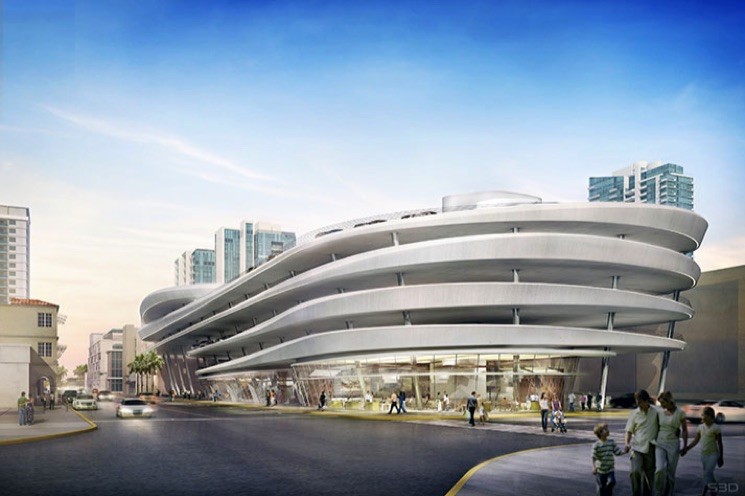- Parking is so expensive that it's a drag on the economy. Building a space costs more than many cars, and the average office building devotes twice as much to storing an employee's vehicle as it does to the employee themselves. (Business Insider)
- The Federal Highway Administration is launching a $350 million program for safe animal crossings. Vehicle-wildlife collisions kill 200 people a year. (Smart Cities Dive)
- "Mobility justice" should be a thing, just like racial justice, economic justice or environmental justice, and it ties into those concepts as well, according to the new book "Cars and Jail: Freedom Dreams, Debt and Carcerality." (Public Books)
- Ultimately, sustainable transit is the solution to climate change, not electric vehicles. (Chicago Policy Review)
- Most rural U.S. towns are sprawling and car-centric because they grew after the rise of the automobile and the government invested in roads instead of rail, but that doesn't mean they have to be. (CNU Public Square)
- Transit-oriented development not only helps people who want to live in cities find housing, but also helps connects cities to suburbs via transit. (Arch Daily)
- California transit agencies are facing the dilemma of raising fares or cutting services, either of which will hurt low-income riders. (Cal Matters)
- The Southeastern Pennsylvania Transportation Authority just passed what officials expect will be its last budget without fare hikes or service cuts as federal COVID funding runs out. (Philadelphia Inquirer)
- The Metro Atlanta Rapid Transit Authority is considering trading lesser-used bus routes for more frequent service on others. (AJC)
- Far-right Arizona lawmakers have declared war on Phoenix light rail, which, ironically, will only make traffic worse on the highways they love. (Republic)
- There are five options for Austin light rail, but one is clear frontrunner. (Chronicle)
- Cleveland's transit agency is looking at four potential bus rapid transit lines, as well as buying new train cars for the first time in 40 years. (Scene)
- Washington, D.C. is pushing back bike lanes on Connecticut Avenue. (Axios)
- A New Urbanist development in Texas will feature car-free zones and streets designed for safety first. (Rice Kinder Institute)
- Amsterdam is proposing closing more streets to through traffic in an effort to keep cars out of the central city. (City Lab)
- Three wheels are better than two: E-rickshaws are the hot new mode of transportation in Asia. (The Atlantic)
- Bikes now outnumber cars during London's rush hour. (Reasons to Be Cheerful)
Streetsblog
Friday’s Headlines Don’t Want to Pay for Parking

Miami Beach hired Pritzker Prize-winning architect Zaha Hadid to design a parking garage. The design was scrapped last year because of its high cost, but the city — facing an affordable housing crisis — hasn’t reconsidered its policy of promoting car storage. Image: Zaha Hadid Architects
Stay in touch
Sign up for our free newsletter
More from Streetsblog USA
Trump’s Canada Bridge Tantrum Could Be Bad News For An International Bike Trail
A multi-use trail along the Gordie Howe Bridge would be a key component of an epic cross-continental trail route — if Trump doesn't prevent the entire structure from opening.
Disturbing Utah ‘Bikelash’ Bill Takes Aim at Salt Lake City Traffic Calming
Utah state legislators aren't traffic engineers — so why are they writing laws that would force the review of specific bike lanes already on the roads in their capitol, and preemptively stop Salt Lake from building more?
The Explainer: How Big Tech Push For Cheap Car Insurance Hurts Victims
In New York State, Gov. Kathy Hochul is distorting the notion of "affordability" to do Big Tech's bidding.
Tuesday’s Headlines Let Kids Be Kids
Cops should not be arresting parents for letting their kids walk or bike around the neighborhood.
Monday’s Headlines Slow Down
Cities have proven measures they can put into place to slow down speeding drivers and save lives.
The New Uber-Backed Car Insurance ‘Reform’ Push Is Actually A War On Crash Victims
New York State Gov. Kathy Hochul wants to limit payouts to crash victims under the guise of "affordability" and bogus claims about "staged crashes."





